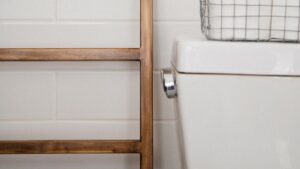
As your home gets older, you may find yourself calling the plumber more often. This is because, over time, your pipes and other parts will be affected by the usual wear and tear and will become brittle or blocked. As a result, different kinds of plumbing issues will arise every now and then.
Knowing how to detect and fix simple plumbing problems can save you money, time, and unnecessary stress. Below are some of the most common plumbing problems you may encounter and tips on how to deal with them.
Leaking faucets
As faucets get older, their washers wear out as well. You can extend the life of your faucet’s washers by not turning the faucet on and off with too much force. Dripping faucets can also be repaired temporarily by replacing the joint yourself.
Leaky pipes
This typical plumbing problem can cause huge and expensive damage to floors, walls, and belongings. Leaks in pipes usually occur at joints. If this is the issue, you can easily fix this with commercial joint fillers and fitting compounds which you can buy at a hardware store. You can also prevent small leaks from worsening by checking your pipes regularly. Be on the lookout for rust or white lime deposits since they can indicate the beginnings of a leak.
Clogged or slow drains
If the water or anything that goes into your sink, toilet, or tub won’t go out, it is highly likely that you are dealing with either a partial or a complete clog. To get the drain flowing quickly again, remove the waste materials or debris immediately. There are different plumbing tools you can use for this task.
You can also use some chemical products or lubricants which will break up the waste material. This will allow the stuck material and water to flow through with ease.
No hot water coming from faucets or shower
This plumbing problem is caused by an issue with your water heater. If this problem keeps happening, before calling a Tureks Plumbing Services, make sure you check the following first:
- If you have an electric water heater, check the thermostat first. Your device may have a malfunctioning heating element which you can also replace since you can buy this part at most hardware stores. Check if the device is leaking water and has an undersized or weak fuse or breaker since they can cause your heater to malfunction as well.
- If you have a gas water heater, make sure that the gas is on and the gas valve is not in the closed position. Make sure the pilot light is on as well. Adjust the setting to ensure that the temperature is set high enough to give you adequate amounts of hot water.
Low water pressure
Low water pressure is a common plumbing problem in older homes but it can also happen in newer homes, too. Low water pressure can be caused by a leaking or corroded pipe, old shower heads, blocked faucets or pipes, and other plumbing issues. You can keep this problem in check by having pressure regulators installed.
If you’re not sure you can deal with your plumbing issue, don’t hesitate to call the professionals immediately. Plumbers, such as the team of Turek’s Plumbing, will be able to correctly assess your problem and fix it quickly.

